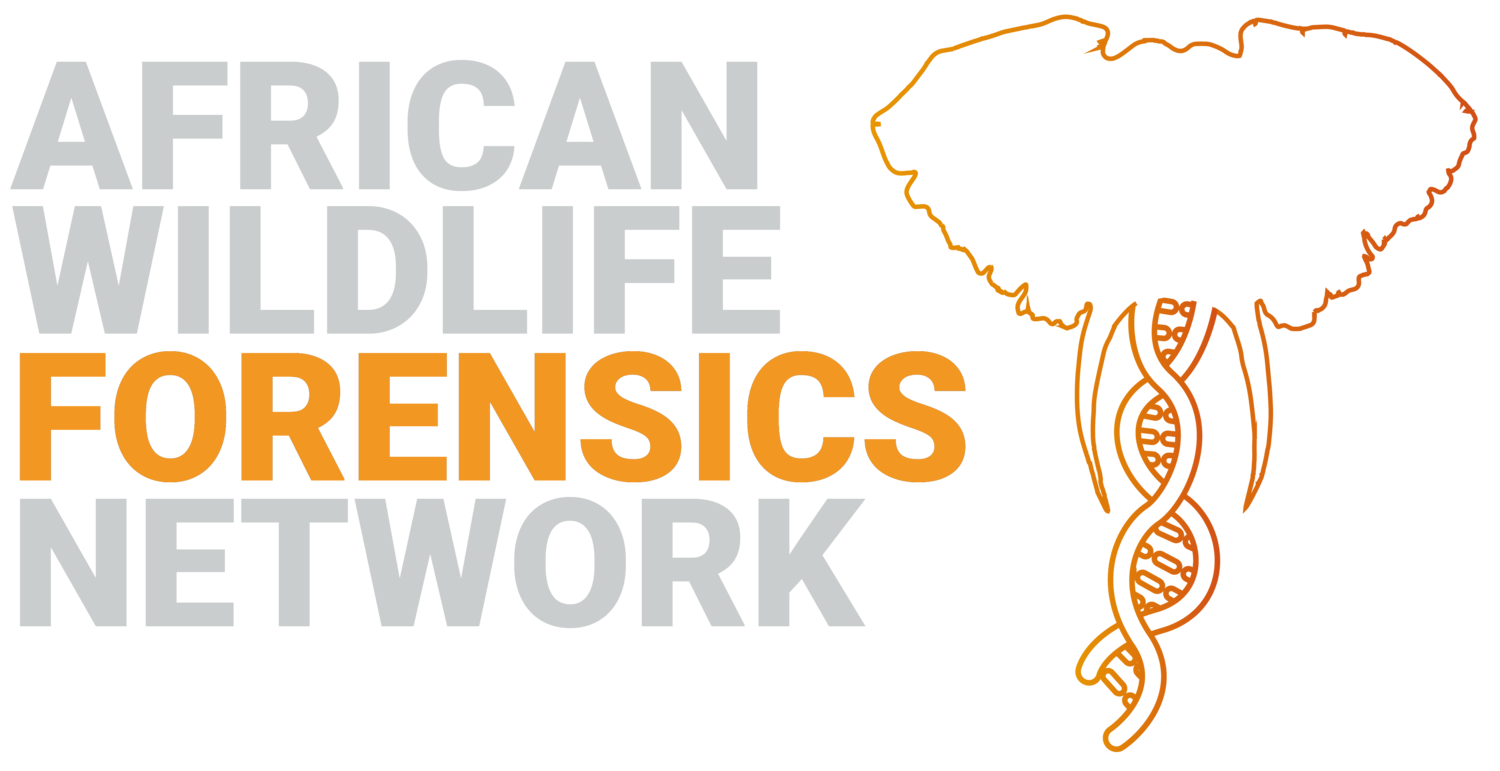
Wildlife Crime Scene Investigation
Wildlife Crime Scene Guide Development
The AWFN Wildlife Crime Scene Guide for First Responders is now published. It is available as a hard copy upon request to the UNODC.
The aim of this Guide is to advise first responders on the stages of processing a suspected wildlife crime scene, while allowing them the freedom to use their initiative to overcome practical and logistical hurdles.
The guide was produced under the African Wildlife Forensics Network with support from the United Nations Office on Drugs and Crime (UNODC), the European Commission and the Government of France, with technical guidance from the Netherlands Forensic Institute and TRACE Wildlife Forensics Network.
The Guide is available in English and French. You can download an overview of contents below, and request the full version via UNODC directly. Details within the pdf.
Wildlife Crime Scene Training Videos
Based on the African Wildlife Forensics Network’s Wildlife Crime Scene Guide for First Responders, the AFWN has produced a series of videos that can be used for training purposes to help introduce some of the concepts behind crime scene investigation. This can be a resource for WCSI trainers, or as a reminder for students who have already taken training or are about to do so.
The videos cover six topics:
Wildlife Crime Scene Responder Basics
Wildlife Crime Scene Responder Health and Safety
Wildlife Crime Scene Responder ‘Every contact leaves a trace’
Wildlife Crime Scene Responder ‘If it isn’t documented it didn’t happen’
Wildlife Crime Scene Responder - Approach and secure
Wildlife Crime Scene Responder - Photographing the Scene
Wildlife Crime Scene Training Manual Development
To accompany the production of the African Wildlife Forensics Network’s Wildlife Crime Scene Guide for First Responders, the AWFN has also developed a Training Manual based on the contents of the guide, providing a teaching resource for WCSI trainers.
The Training Manual is designed for use by experienced Wildlife Crime Scene Investigators or Instructors with extensive knowledge of first responder awareness training.
First responder equipment recommendations
As part of the wildlife crime scene guide, the AWFN has made recommendations for the contents of a first responders’ kit, along with alternatives for when specific items of the recommended equipment cannot be accessed.
For further guidance on WCSI equipment, please contact the AWFN.
Crime scenes and evidence management
The AWFN helps its members develop in-country crime scene and evidence management capacity within their wildlife law enforcement agencies.
It is essential that national wildlife agencies are able to secure and manage evidence from discovery at the crime scene until its is presented in the courtroom. Mistakes in evidence management are commonly a target for criminal defence, with mistakes leading to conviction failures, and is therefore a critically important aspect of wildlife law enforcement.
Training and Standards
The AWFN Wildlife Crime Scene Investigation group has an ongoing focus on the development of minimum standards that should be achieved by all personnel trained to work on a wildlife crime scene and for all instructors delivering such training.
Activities in this area include maintaining close communications with national and international ranger training programmes to ensure that wildlife crime scene training and evidence collection is harmonised, coordinated and in line with emerging good practice across all aspects of continual professional development.
The WCSI group also seeks to improve the level of awareness of risks posed by disease and poisoning to frontline wildlife law enforcement, notably those posed by zoonotic diseases, as evidenced by the Covid-19 pandemic.
Explore our work concerning Networking and Wildlife Laboratory Analysis.






